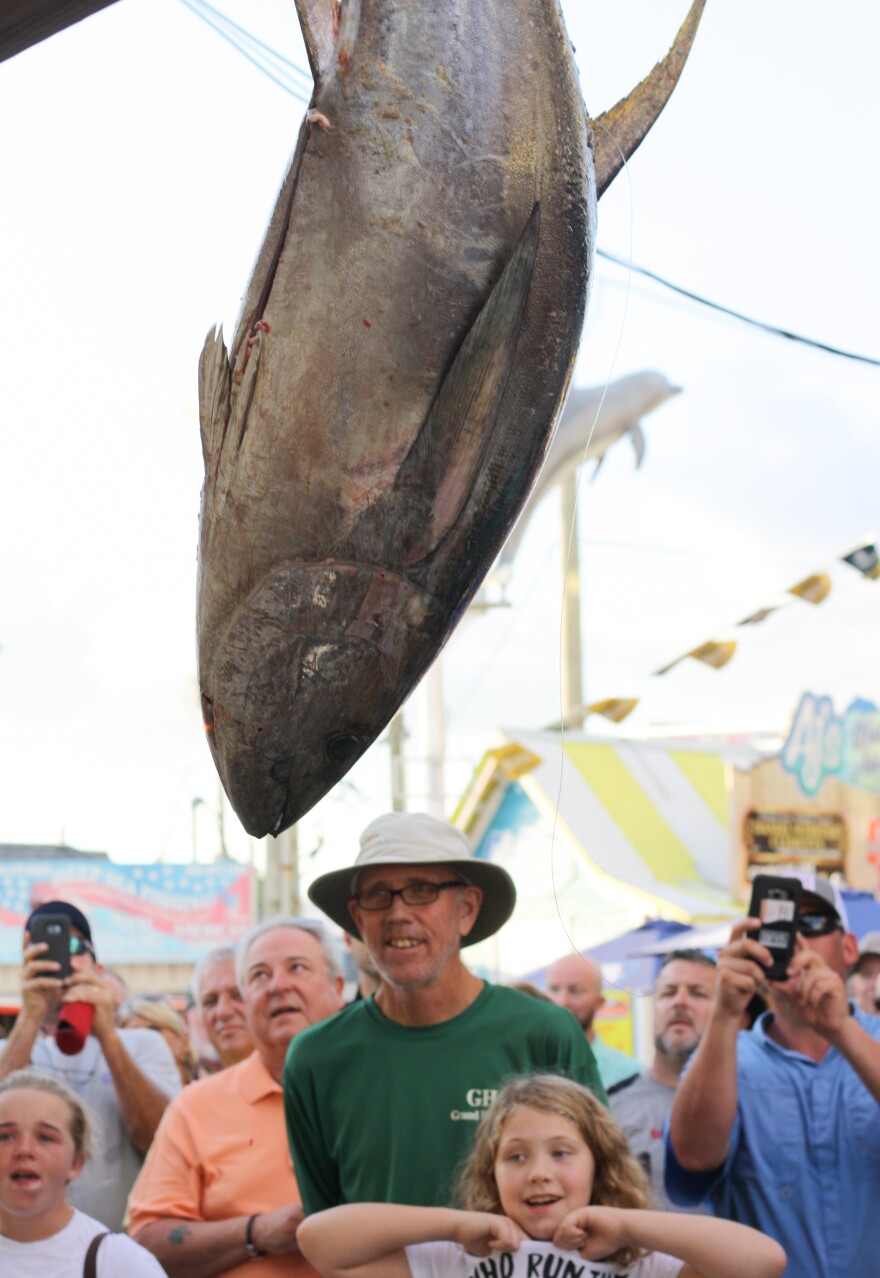
Throughout the month of October, crowds of people gather around the fishing docks along the Destin Harbor for the Destin Fishing Rodeo.
It’s a 70-year tradition celebrating the city’s fishing history.
Before Destin was crowded with visitors and businesses, it was a quiet fishing village. Many of the early settlers of the peninsula were poor dirt farmers and fishermen, said Kathy Marler Blue, executive director of the Destin History and Fishing Museum.
“Destin began with commercial fishing in the 1800s,” she said. “There were small, open boats; there were no mechanized rod and reels. (Fishermen) utilized what they called beach seine nets and they fished for anything that would school up.”
The city’s founding father and namesake, Leonard Destin, came to the small peninsula in Florida’s Panhandle around the 1850s and built a fish camp (a seasonal settlement). From there, he established a profitable fishing business.
“It was obvious that fishing here was tremendous — it was so tremendous that they took their fish by schooner to Pensacola where there were rail and shipping and fish markets and the people over there could not fathom how Destin was getting more fish,” Blue said.

Soon enough more fishermen set up fish camps in the Destin area. Some retrofitted their seine boats and became boats for hire. Around the 1850s, there were a little over a dozen fisherman in Destin. Today, Destin has the largest licensed charter and commercial fishing fleet not only in Florida but in North America.
The city’s motto is “World’s Luckiest Fishing Village” but Blue said it’s more than just luck that makes Destin a popular place to go fishing.
“There’s a scientific reason for why the fishing here is so varied,” she added. “Many places are very well-known for a particular species of fish. Here, it’s a huge variety.”
Located on a peninsula, Destin has both deep sea and bay fishing available. Destin is also the closest port to the deepest water in the entire panhandle. For these two reasons, anglers can access every depth of fishable water, said Blue.
An entire industry was born around fishing in Destin. From the charter boat captains, who charge an average of $200 an hour, to the fish markets and restaurants that serve local seafood.
The Fishing Rodeo was first established as “one last shot” for anglers to bring in business before the winter months, said rodeo President John Brashears.
“There’s hundreds of people who make their annual living from fishing,” he said. “November, December, January, and February you’re not taking anyone fishing, but you still have bills to pay.”
Over the years, the Destin Fishing Rodeo has grown. In the early days, prizes were kitchen appliances — even cases of beer. Today anglers can win high-end rods and reels, weekend stays and cash. The rodeo also provides an economic boost. Anglers provide an estimated $3.8 million income to the charter boat industry in October, according to the rodeo website.

It’s also just plain fun. From 10 a.m. to 7 p.m., registered boats bring their catches up to the dock to get weighed in hopes of making it on the leaderboard. The fish are announced by the official weighmaster Bruce Cheves who cuts into the outdoor PA system with
Cheves has been working with the rodeo for about 34 years. He’s practically synonymous with the Destin Fishing Rodeo as folks tend to sit around the docks to hear him tell fish tales and announce each catch. And after decades of fishing, Cheves says he still gets surprised by what comes up to the docks.
“All the years I’ve been out working on boats I’m still seeing fish I’ve never seen before so we’ve got to Google it up — someone in the crowd might know,” he said. “The cool thing about what I do is what I do. All these people have got to listen to me for a month long.”
Capt. Dick Tew has been volunteering with the rodeo as one of the judges this year. He realized his longtime dream of being a charter boat captain six years ago at the age of 74. He enjoys what he does so much he doesn’t even charge to take people fishing.
“There’s nothing more satisfying than taking people out and seeing the looks on their face when they catch fish,” he said.
It’s that kind of feeling that Brashears said he wants the rodeo to preserve. Beyond the economic impact, the fishing industry is about the people.
“People that work the fishing boats, it’s in their blood it’s just what they do,” he said. “They’re different individuals. Hard working, big-hearted people — they all help each other in times of need. It’s a good community to be associated with.”







